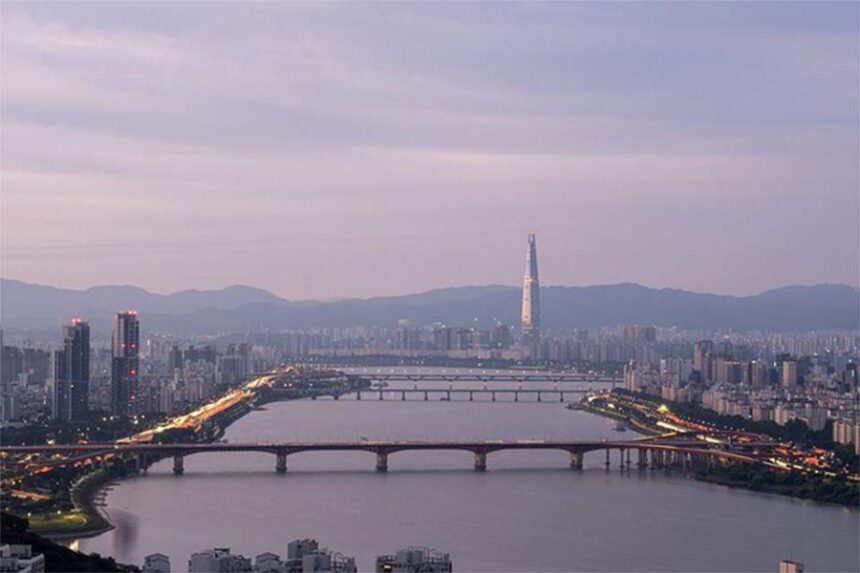December 12, 2024
Manila – South Korea is a very neat and clean country, but there are very few trash cans in public places. When I noticed this shortly after we arrived in 2023, I was told why: it was a legacy of the pro-democracy riots of the 1980s, when students threw trash cans at police.
There is an undercurrent of toughness and even confrontation in the politics of the Republic of Korea. We introduced this through the Korean medical system, and last February the government announced that it would increase admissions to medical schools. The medical community erupted in anger, residents and interns went on strike, and even as professors had to scramble to fill vacancies, the industry continued to support the strike. The government reacted with increasing annoyance, at one point threatening to conscript striking residents and interns into the army to force them to return to work. Public opinion was strongly opposed to the strike, which was seen as an effort to support the maintenance of doctors’ wealth and status in a society with one of the lowest ratios of doctors per capita among the developed world.
The strike continues today; in the hospital, we have family visits, the oncology department has stopped admitting new patients, and waiting times for many services are long. What this means to me is that, when the stakes are high enough, public opinion can be ignored, even scorned, by a determined, even self-serving, minority—and these institutions, even if they are supported by public opinion, can be thwarted as a result.
Despite his protests to the contrary – which he said were symbolic – South Korean President Yoon Seok-yeol is serious about martial law. But as he himself claimed in the speech announcing the stunning move, he felt he was at the end of his rope as his cabinet continued to be impeached, his budget was slashed and his wife faced endless investigation, so he felt he was powerless to govern: not least, although he did not mention it, because his party lost the midterm elections, reducing him to a lame-duck president. Observers later pointed out that the confrontation between the president and the opposition parties was so intense in part because the opposition leader himself faced multiple investigations, and an early presidential election would allow the leader, Lee Jae-myung, to avoid disqualification.
The problem (for Yin, it turned out) was that he was dealing with a society, and even a political system, allergic to the idea of emergency rule. Our Supreme Court likes to quote the old adage: “When the gun fires, the law is silent,” and any martial law worthy of the name would require not only careful planning but ruthless execution by emboldened troops.
Two stories best illustrate the military’s response to being ordered to shut down the legislature, jail lawmakers, take over the media and push conspiracy theories that the opposition rigged the midterm elections, leading to the defeat of the ruling party. Special forces scheduled to enter the National Assembly by helicopter were delayed for 40 minutes because the air force was unaware that martial law was in effect and they had to wait for permission to enter the no-fly zone. The Delay Party explained how MPs had the opportunity to convene an emergency meeting to vote down martial law; the soldiers sent to raid the National Election Commission “all walked a long way or ate instant noodles at a convenience store, and then after martial law was lifted Stroll back.”
A British news report put it best: Martial law lasted half an hour longer than the movie Parasite. President Yoon not only failed, he failed so spectacularly that it seems impossible to avoid impeachment. But he did it, for reasons similar to those that make Korean doctors successful: stubborn discipline motivated by self-interest.
South Korea’s constitution requires impeachment to require a two-thirds majority vote, or 200 out of 300 lawmakers. Although the president’s party has lost some ground, it still has 108 seats – eight more than it needs to reject the impeachment motion. If the party disciples persist, impeachment will fail–over and over again. On the day of the impeachment vote, he made an offer his party couldn’t refuse: He would step down from governing and share it with his party, he said. But he will remain in office.
Benito Mussolini’s son-in-law and foreign minister Galeazzo Ciano famously said: “Victory has a hundred fathers, but failure is an orphan.” For the president’s party, last time When impeachment occurred, the then-ruling party helped throw their leaders overboard, and themselves were massacred at the next election. The lesson from this is that the ruling party has nothing to gain by joining the impeachment wave: as one government lawmaker Yun Sang-hyun put it bluntly: “We are criticized now, but people quickly forget. We saw after the impeachment of Park Geun-hye Come to this point. Give us a year and they will vote us in again and they will prevent the opposition from winning but still manage to stay in power. But Yin has to go.
(to be continued)





